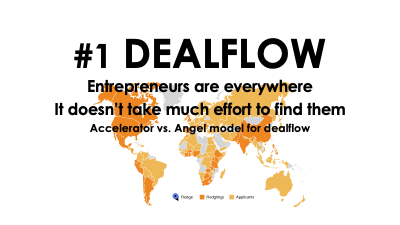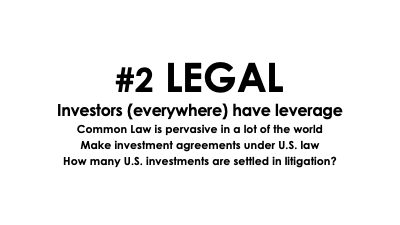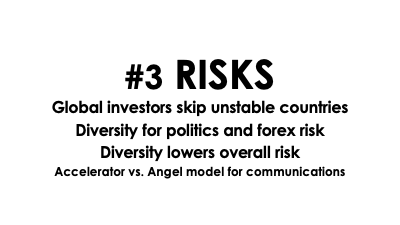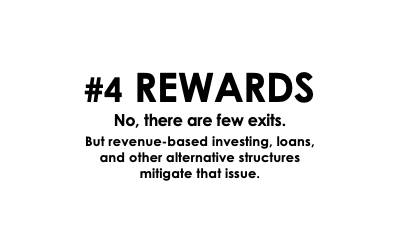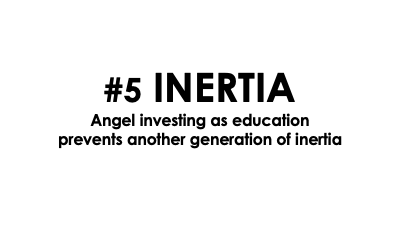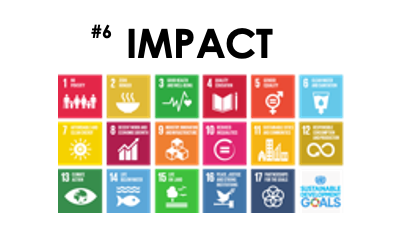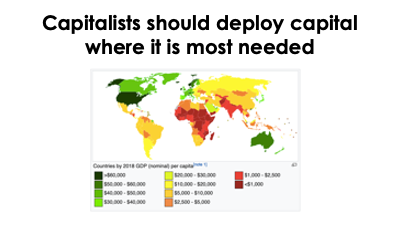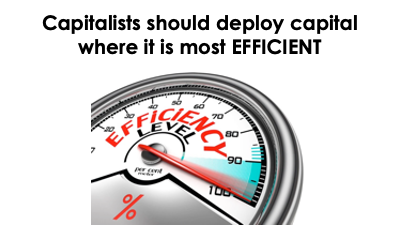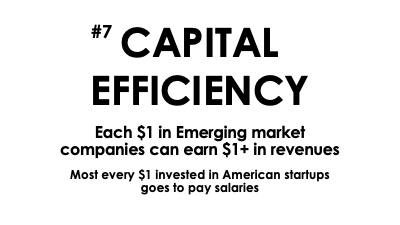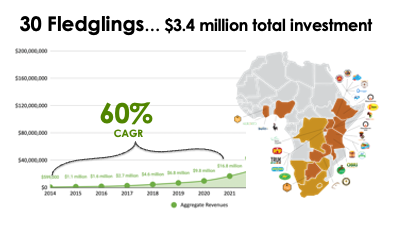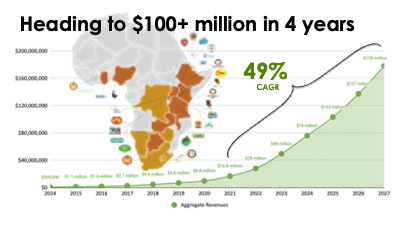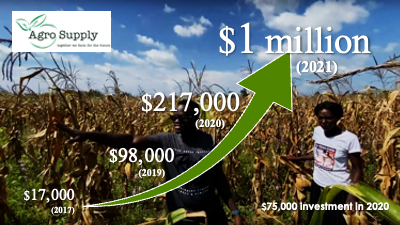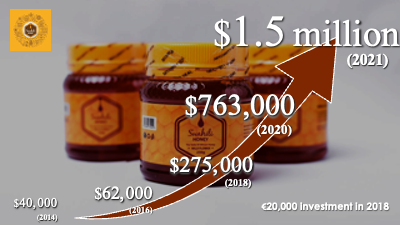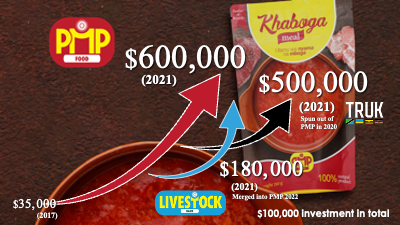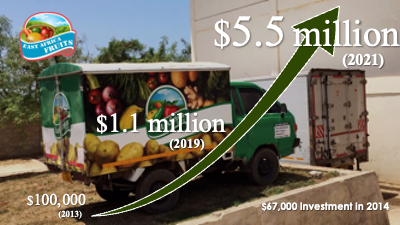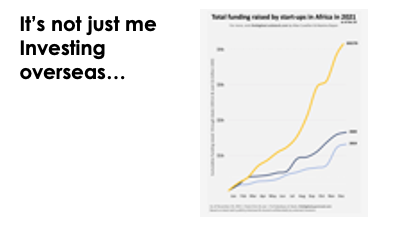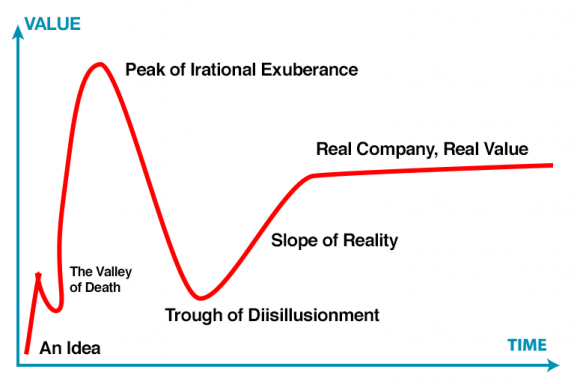I was asked last week by the Seattle Angel Conference to explain why investing overseas is not as big a challenge nor as big a risk as most Angels think. TL;DR: it’s very similar to investing locally but with much larger market opportunities and far far far fewer investors and thus far more realistic terms.
This is one of the topics often covered by The Angel Accelerator, itself inspired by the Angel Conference series. After learning this specific lesson, most of the Angels in the Angel Accelerator invested overseas.
We know that isn’t the norm. From the HALO reports we know that the vast majority of start investing (from Americans) is not just local to the U.S., but local within the country. 90% of investments by New England (a.k.a. Northeast) investors went to companies based in New England. 92% of investments from the Northwest stayed in the Northwest. The same with the South, Midwest, etc., with only California and New York bucking that trend, but where Silicon Valley and New York are the only two regions of the country will too much money chasing too few startup opportunities.
Why? Why does so much of this capital never even make it across the country, let alone overseas?
Dealflow. The first reason is dealflow. In the beforetimes, most investors felt the need to meet founders face-to-face. That happens more often in one’s local city. Word of mouth used to spread at cocktail parties and industry events, spreading excitement from those meetings locally.
Here in the post-pandemic 2020s, it is just as easy to meet a startup from Kigali, Rwanda as it is to meet a startup based one exit down the freeway.
Investors worry about the difference in business law and the complexities of hiring lawyers in other countries. Turns out the British Empire didn’t just make English the common language of global business, but also Common Law.
Business law in every former British Colony looks and acts similarly to business law in the former American Colonies. And it turns out even that doesn’t matter too much, as investors write the contracts for investments, not the startups, thus investors can specify Delaware law and Delaware courts to settle any disputes.
Investors worry about political risk, yet didn’t worry about January 6th. Investors worry about forex risk, yet ignore the public market crash larger than 1929 when the pandemic struck.
Yes, there are risks, but investors can ignore opportunities in any country where those risks are high. There are plenty of countries overseas with decades of stable governments and currencies that either follow the dollar or which devalue at a slow and steady rate. Plus investors can diversify these risks by investing in multiple countries, diversifying the risks they are taking (but ignoring) in putting all their eggs in the U.S. economy.
Startup investors tend to ignore the fact that most startup investments never get to a good exit. That is even more true overseas, but alternative structures are the best way to mitigate that both in the U.S. as well as overseas.
In any case, the opportunities are so much larger overseas than in the U.S. that the risk/reward ratio should drive investments overseas. But more on that later…
The biggest reason most of startup investing is local is that most of startup investing since the 1960s has been local. The root cause is the way Angels (and VCs) are taught investing. It’s an apprenticeship model, learning by watching others.
Most startup investors invest locally, thus most new investors see this behavior and copy it, never questioning why. Or in other words, it’s a self-perpetuating, emergent behavior. One that is because it is, rather than optimized for what is actually best for the investors.
I’m an impact investor and the simple fact is that the far larger impacts can be made outside the U.S. than inside. Overseas is where you’ll find the most poverty and hunger, the poorest health and education services, and where the most suffering will take place as the climate changes.
It seems a flaw in Capitalism that the capitalists seek the best returns for the lowest rewards rather than seeking the biggest opportunities, which tend to be where there is the least amount of capital, a.k.a. the highest rates of poverty.
It also seems a flaw in Capitalism that those low-risk investments are often the least efficient. Personally, I much prefer investments that do the most with each $1 I’m investing.
How do I measure efficiency? Simple. The ratio of Annual revenues per $1 of investment?
Would you rather invest in a company that takes $1 million of capital and earns $100,000 of annual revenues in the following year, or invest $100,000 of capital in a company that earns $1 million of revenues?
Very very very few American startups do the latter. At the tens of thousands of applications I’ve seen at Fledge, only those in emerging markets have a positive ratio of last year’s revenues divided by total investment capital. From Africa, we see a positive ratio in about 5% of all applications. At Africa Eats, it’s the norm.
At Africa Eats, $3.4 million was invested into the 30 portfolio companies, and in 2021 they earned an aggregate of over $16.8 million. The plan is to invest another $10-$20 million of growth capital, and with that see those aggregate revenues grow 10x again, past $168 million well before the end of the decade.
The graphs above show four of the fastest growing companies at Africa Eats. There are tech startup that grow even faster, but personally I like companies that are capital efficient, and most of all, companies that are profitable.
I take on the small amount of added complexity investing overseas because to me these opportunities are lower risk and likely higher reward than the startups pitching at my local Seattle-based Angel groups, or national impact investing pitch events, or the multitude of startups I see on Angel List, Wefunder, Start Engine, etc.
I’m not the only American to see this opportunity. Last year the total venture capital in Africa more than doubled, past $5 billion.
Have I convinced you? If so, contact me if you want dealflow of investments like these. I’m more than happy to share. The opportunities are orders of magnitude larger than the capital flowing today.



